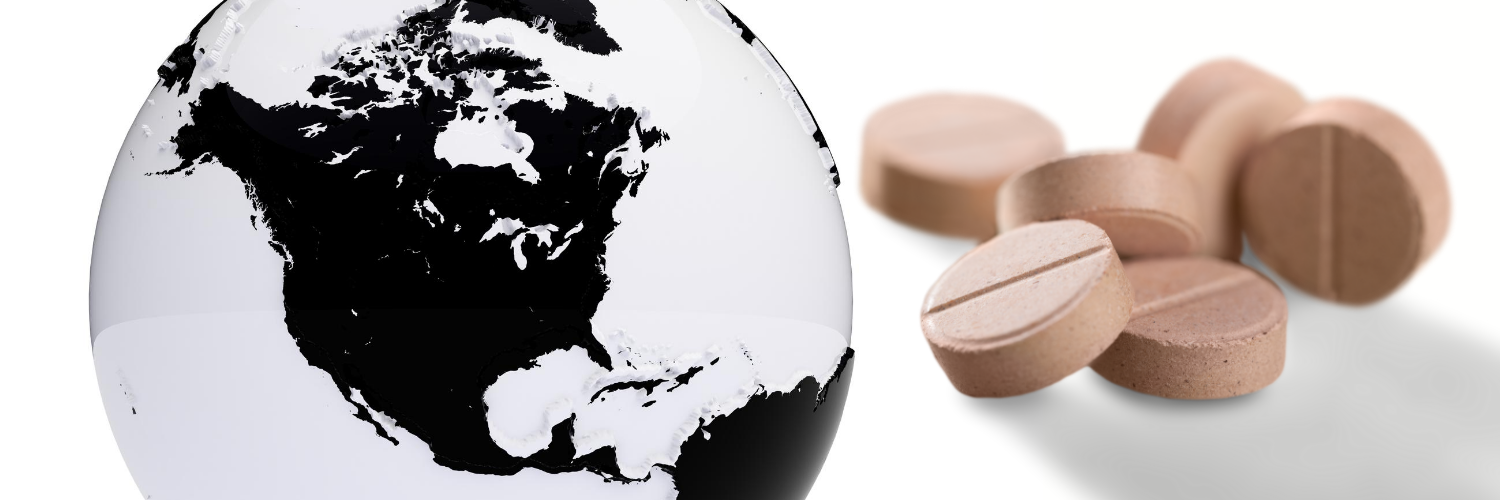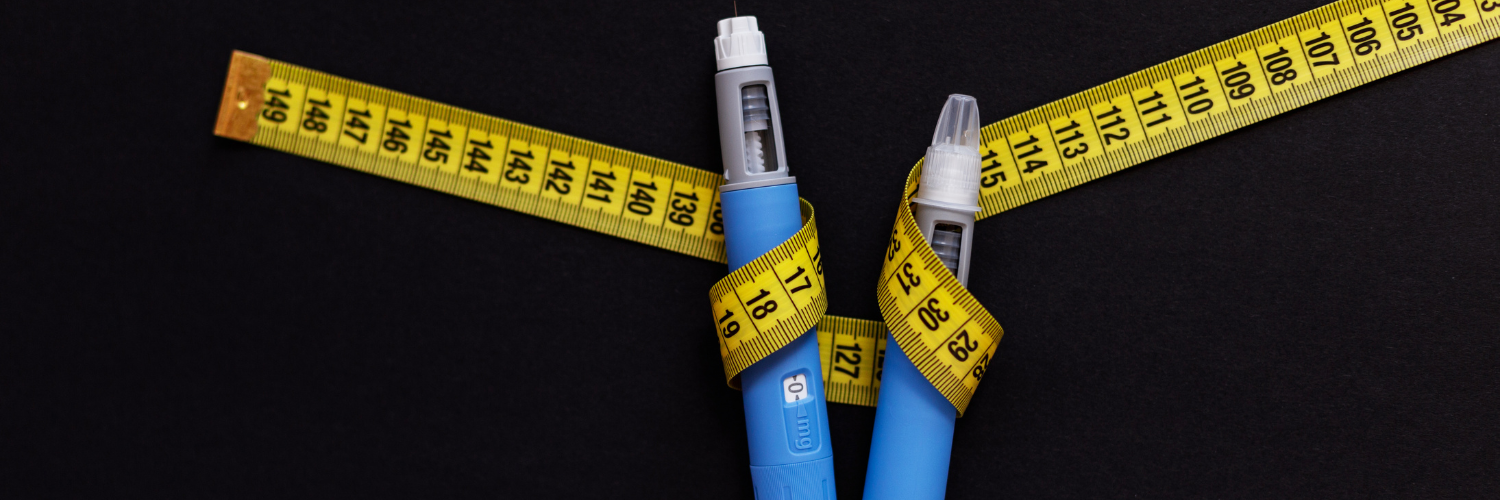How International Online Pharmacies Handle Drug Recalls

An Expert Q&A with Ross Phan, PharmD, MBA, BCACP, BCGP, BCPS, Director of Pharmacy Verification and Information, PharmacyChecker.com
When patients and caregivers consider buying medicine online across borders, questions about safety naturally arise. One of the most critical aspects of pharmacy safety is how drug recalls are handled. If a medication is recalled for safety, quality, or labeling issues, how do international online pharmacies ensure affected products are properly managed and that patients are protected?
I sat down with Dr. Ross Phan, who oversees the PharmacyChecker (PC) International Pharmacy Verification Program (IPVP), to break down how accredited international online pharmacies address drug recalls and protect patient safety.
How are pharmacies participating in the PharmacyChecker IPVP notified about a drug recall?
Dr. Phan: Dispensing partners of international online pharmacies receive recall notifications from local regulators, manufacturers, or wholesale suppliers. Under PharmacyChecker Inspection Program Standard 4.2, “wholesalers supplying medications to the dispensing pharmacy must agree to forward any recall notifications to the pharmacy.” Further, “there must be a recall procedure in place that is clearly communicated in writing.”
Are pharmacies required to take immediate action?
Yes. Accredited wholesalers partnered with Tier 2 dispensing pharmacies (defined by PharmacyChecker as those pharmacies subject to inspection due to their location in a region with lack of advanced regulatory authority oversight) have signed agreements to forward recall notices to pharmacies within the shortest time frame possible, usually within 24 hours. PharmacyChecker currently accredits and inspects Tier 2 dispensing pharmacies located in India and Mauritius.
Once a recall notice is received, dispensing pharmacies act right away. While some pharmacies include severity classifications (Class I, II, III) in their protocols, the response is prompt regardless of classification. Immediate steps include removing affected inventory and initiating patient notification if needed.
What happens if a recalled drug has already been shipped to a patient?
Dispensing pharmacies may contact patients directly or coordinate with their online pharmacy partners to notify patients.
One pharmacy mentioned contacting customers through the fastest mode of communication, which may include email, telephone, fax, SMS, etc. Another pharmacy mentioned communication via phone with multiple attempts as necessary, and a copy of a recall notice will also be mailed to the patient. The goal is always to reach the patient quickly and instruct them not to use the affected medication and arrange for its return or proper disposal.
PharmacyChecker Inspection Program Standard 4.8 states that “there must be a separate area provided for the storage and disposal of such [returned] medications. Returned medications may not be re-dispensed. They must be disposed of in an environmentally responsible manner.”
How are recalled products managed in the pharmacy?
Pharmacies maintain a designated quarantine area to segregate recalled, expired, or compromised products. Upon receipt of a recall notice, dispensing pharmacies will check to remove and separate the recalled product from the rest of the inventory.
What about management of expired products?
Checking inventory for expired medications is a standard, regular practice. Dispensing pharmacies tend to check expiration dates upon wholesaler delivery and during prescription order processing. Additionally, dispensing pharmacies may actively look through their inventory every quarter and up to once a month. Products with an expiry date within three months are removed from the shelves. Some pharmacies even remove products sooner with a remaining shelf-life of five to six months.
When dispensing pharmacies notice an expired medication in inventory, the product is placed in a separate designated quarantine area.
Afterward, the expired products are returned to the wholesaler or sent to a pharmaceutical waste disposal company.
Are pharmacy staff specifically trained to handle recalls?
Yes. Under PharmacyChecker Inspection Standards 2.3 and 2.4, all pharmacy staff must receive appropriate training and be familiar with written standards of operating procedure (SOPs), which include processes for drug recalls and product quarantining.
What records must accredited pharmacies maintain when handling drug recalls?
Dispensing pharmacies maintain detailed records of their inventory and online pharmacy partner and customer communications. Documentation may include:
- Recall notification
- Customer confirmation or acknowledgement of notice
- Quarantined product details
- Dispatch record of affected product
- In-house stock of defective product
- Relevant wholesaler information
These records are typically retained for at least two years.
Are pharmacies required to report recall events to PharmacyChecker?
At present, pharmacies are not required to report specific recall events to PharmacyChecker. However, recall handling procedures are reviewed during PharmacyChecker’s regular inspection process. PharmacyChecker verifies that Tier 2 pharmacies have written recall protocols and maintain proper documentation of past recall events and quarantined products. We are actively exploring additional compliance monitoring mechanisms that may include targeted recall audits in the future.
How does PharmacyChecker verify pharmacy readiness for recalls?
During inspections, PharmacyChecker checks the pharmacy’s familiarity with their own processes for handling quarantined products. The inspector will also check the quarantine area and documentation records of previous quarantined products.
What happens to damaged or compromised medications not tied to a recall?
These products are immediately segregated and quarantined. Damaged or compromised products (e.g., broken seals, improper storage) are rejected upon delivery or identified during audits and are returned to the wholesaler or sent to pharmaceutical waste disposal companies for safe destruction. These medications are never dispensed to patients.
How PharmacyChecker IPVP Standards Help Ensure Effective Recall Protocols in India
India plays a major role in the global pharmaceutical supply chain, producing over 20% of the world’s generic medicines. India’s Central Drugs Standard Control Organization (CDSCO) publishes Guidelines on Recall and Rapid Alert System for Drugs to define a national framework for managing defective medications. The guidelines include:
- Classification of recalls (e.g., Class I for serious health risks);
- Rapid alert notices to supply chain actors;
- Written recall notices and standardized templates;
- Product quarantine, destruction procedures, and traceability;
- Mock recall drills to test effectiveness; and
- Reporting and post-recall follow-up documentation.
CDSCO maintains a monthly series of Not of Standard Quality (NSQ) Alerts, listing drugs, devices, vaccines, and cosmetics declared as not of standard quality, spurious, adulterated, or misbranded. CDSCO states that “drug samples are picked from sales/distribution point, analyzed and list of Not of Standard Quality (NSQ) drugs are displayed on CDSCO portal on monthly basis,” and the “purpose of displaying the NSQ list is to make stakeholders aware about the NSQ batches identified in the market.”
CDSCO also publishes explicit product recall notices, although the PharmacyChecker team notes that these tend to be significantly less frequent than their monthly NSQ alerts: The most recent recall notice posted appears to date back to 2017. Broader public notices reveal two voluntary recalls from 2023 and 2024. These gaps raise serious concerns about the effectiveness and transparency of India’s recall infrastructure. In line with PharmacyChecker’s skepticism, a March 2025 investigation entitled “The Massive Failures of India’s Drug Regulatory System”, featured by the Pulitzer Center and part of “Pills, Perils, Profits”, a Himal Southasian investigative series on South Asian pharmaceutical manufacturing and exports, claims that India does not have a “proper drug recall mechanism” at all:
India has been mulling over legislation for mandatory recalls of substandard drugs since 1976. This, with the required enforcement, would mean that all drug batches found to be substandard could be pulled from the market as soon as a problem is identified. Yet no such law has been enacted to this day.”
Regulatory authorities are often understaffed and underfunded. In the United States, for example, it’s been reported that the FDA inspection force has had staffing issues since 2018 and calls for regulatory action when pharmaceutical companies are out of compliance are being ignored and downgraded 60% of the time, “because it required capacity the agency didn’t have.” The Himal investigation highlights that, in India, licensing enforcement is patchy allowing companies banned in one Indian state to resume operations in another. Bribes, political interference, and weak penalties for substandard manufacturing further hinder accountability. Even during government crackdowns, recalled or substandard products were found circulating for months without effective removal.
These failures demonstrate a core truth: Drug recalls are only as effective as the systems behind them. When public regulatory systems fall short, patients in countries without strong domestic drug oversight are left vulnerable. PharmacyChecker’s International Pharmacy Verification Program (IPVP) plays a critical role. Dispensing operations in India, accredited through the IPVP, are required to undergo annual inspections. As Dr. Phan highlights in the above Q&A, through regular inspections, required SOPs, and direct accountability, the program helps ensure recalled medications are identified, removed, and communicated to patients without delay.
About Dr. Ross Phan
Ross Phan, PharmD, MBA, BCACP, BCGP, BCPS, serves as PharmacyChecker's Director of Pharmacy Verification and Information. She holds multiple board certifications and pharmacy licenses across the U.S. and brings extensive regulatory, clinical, and quality assurance experience to her oversight of the PharmacyChecker IPVP.
About PharmacyChecker’s International Pharmacy Verification Program
The PC IPVP establishes safety and compliance standards for international online pharmacies serving patients worldwide. Drug recall protocols are just one part of the extensive oversight conducted to protect patients and ensure pharmacy accountability.




